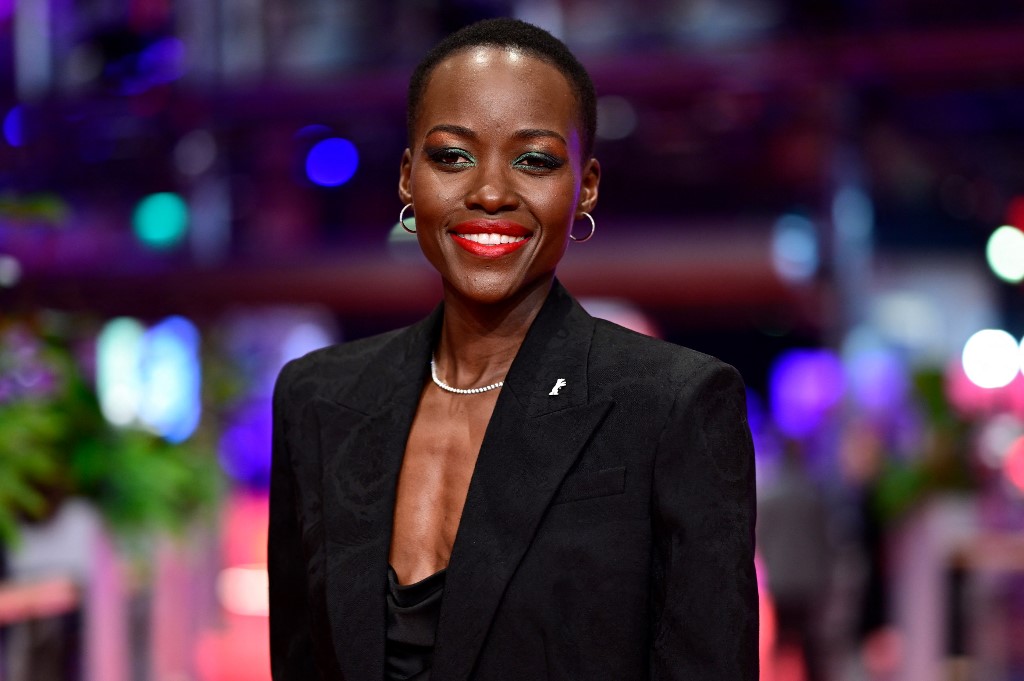An Iranian love story by a dissident director couple and a chilling Austrian historical horror movie were the favourites to pick up prizes at the Berlin film festival ahead of awards night Saturday.
Kenyan-Mexican Oscar winner Lupita Nyong’o, the first black jury president at the 74th annual event, will present the Golden and Silver Bear top prizes at a gala ceremony.
An international critics’ poll by Britain’s Screen magazine showed the bittersweet Iranian romance “My Favourite Cake” and Austria’s gory “The Devil’s Bath” as the biggest hits among 20 films in competition.
The success of “My Favourite Cake” proved particularly poignant as the duo behind the crowd-pleaser, Maryam Moghaddam and Behtash Sanaeeha, were barred by Iranian authorities from travelling to Berlin for the premiere.
The film tells the story of a lonely retired nurse who shares a night of drinking, dancing and passion with a fellow pensioner at her home, beyond the prying eyes of the feared morality police.
Moghaddam, 52, told AFP via video link from Tehran that the film’s crime according to censors was “crossing so many red lines which have been forbidden in Iran for 45 years” since the Islamic revolution.
The Guardian hailed the eye-opening movie as “wonderfully sweet and funny”, while The Hollywood Reporter said it “crackles with the valiant, liberational energy of the Woman, Life, Freedom movement”.
‘Staggering’ Murphy performance
Centuries apart and a world away, “The Devil’s Bath” depicts depressed young women in 1750s rural Austria who murder to avert the eternal damnation they would incur, according to religious doctrine, for committing suicide.
Some 400 people, most of them women, used this “loophole” of Roman Catholic dogma allowing them to confess their crimes and seek absolution before being executed, according to directors Veronika Franz and Severin Fiala.
Lead actress Anja Plaschg, also known as musician Soap&Skin, turned in a bracing performance in the lead role of Agnes and also composed the haunting score.
Variety called the film, which is based on historical court records, a “beautiful but staggeringly bleak vision of female depression”.
The 11-day festival opened with the latest release starring man-of-the-moment Cillian Murphy, who just picked up Britain’s BAFTA award and is nominated for an Oscar next month for his turn in “Oppenheimer”.
In “Small Things Like These”, Murphy’s character uncovers secrets in his village behind one of modern Ireland’s biggest scandals, the “Magdalene laundries” network of penitentiary workhouses for “fallen” women.
US movie website Indiewire called it another “staggering” Murphy performance in a film that is “surprisingly understated and yet still full of dramatic power”.
‘Extravagantly crazy story’
Critics also swooned over French screen legend Isabelle Huppert’s third outing with South Korean arthouse favourite Hong Sang-soo, “A Traveller’s Needs”.
Variety said Huppert showed “typically curt, quizzical good humour” in the deceptively whimsical fish-out-of-water story, with an “endearingly scatty, off-hand performance”.
Despite its grim title and subject matter, German tragicomedy “Dying” made a splash with a three-hour tour de force by some of the country’s top actors depicting a dysfunctional family.
Lars Eidinger plays an emotionally distant conductor preparing for the debut of his best friend’s composition, just as his elderly parents are succumbing to ailments and his ex-girlfriend is giving birth to a child.
The Guardian hailed the “bleak, bold, extravagantly crazy story”, featuring “the biggest conductor meltdown since Cate Blanchett’s ‘Tar'”.
The Berlinale, as the festival is known, ranks with Cannes and Venice among Europe’s top cinema showcases.
Ahead of the main awards, the festival gave its Crystal Bear for youth-oriented films to UK production “Last Swim” about a British-Iranian girl’s coming of age.
And rights group Amnesty Germany awarded its Berlinale prize to Jordanian refugee drama “The Stranger’s Case”, calling it “an impressive film about the odyssey of an escape from Syria”.
Last year, French documentary “On the Adamant” about a floating day-care centre for people with psychiatric problems took home the Golden Bear.
